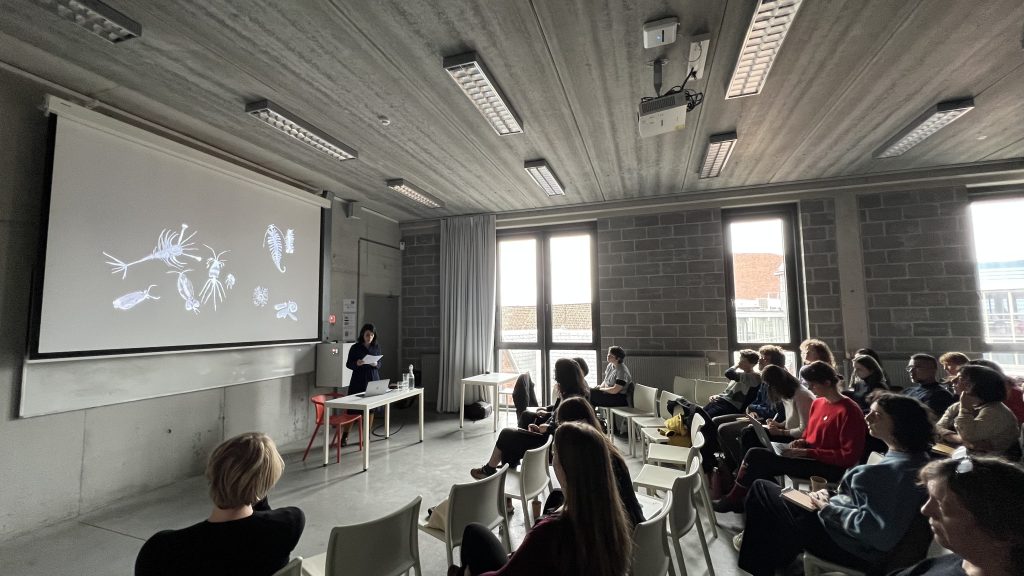
A review by An-Katrien Callebaut
CHAPTER 1: SYMPOSIUM/ROOTED ENCOUNTERS – MORNING SESSION
Nov 8, 2022 – Luca School of Arts, Brussels
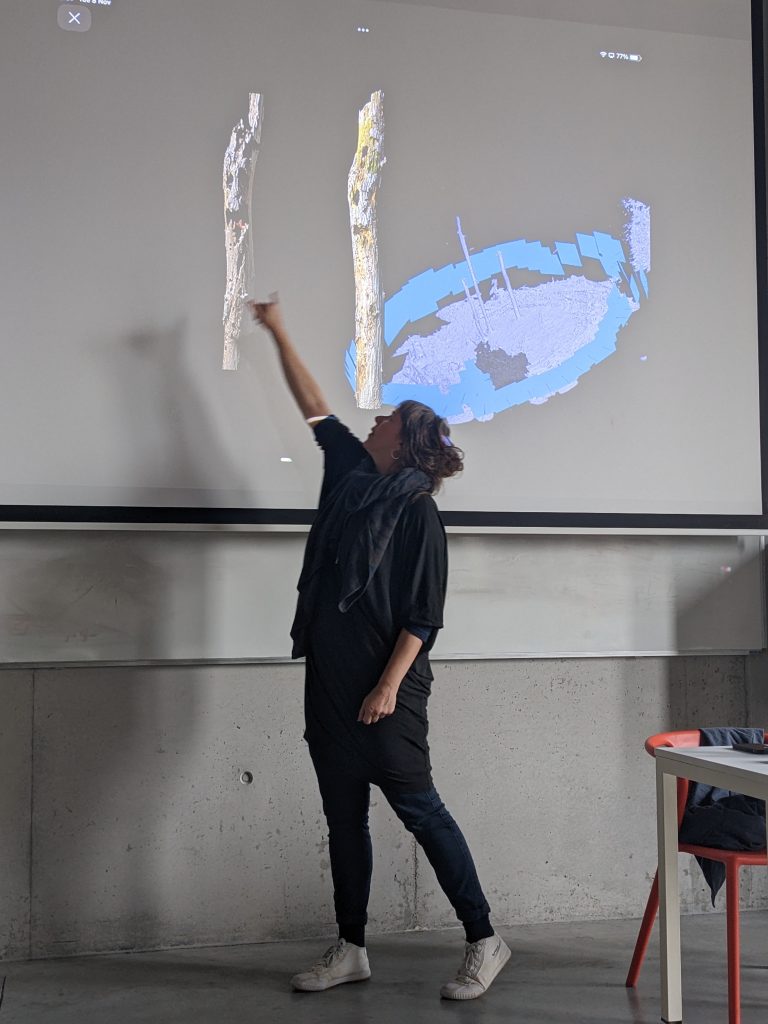
The first day was set off by artistic doctoral researcher and visual artist Alexandra Crouwers. She introduced us to The Plot: a piece of family-owned land, a witness of the climatological crisis, an artistic research project – a digital imprint as a physical space for mourning and regeneration. When Alexandra returned to the little forest of her family in 2019, a bark beetle plague had invaded the area and left its devastating mark. The trees were cut down. She recognised her own eco-anxiety in this scene. The piece of land became a case study, The Plot, in which she explores ways of dealing with this sense of loss through her artistic practice. The results include a vinyl record that uses the patterns in the bark left by the beetles as a musical score. Now we can listen to their story connected to The Plot. On the site itself, Alexandra has placed an information panel but let the rest be: regeneration by doing nothing. It is compelling how Alexandra compares her role as a multimedia artist with the mythical figure of Charon. Almost as a modern reinterpretation, she is carrying The Plot’s soul to the underworld by documenting a digital model of it— a last attempt to preserve its transformative stage. Crouwers takes us with some imagination from the past to the contemporary losses of this places. She wants us to reflect, mourn and even speculate about possible futures.
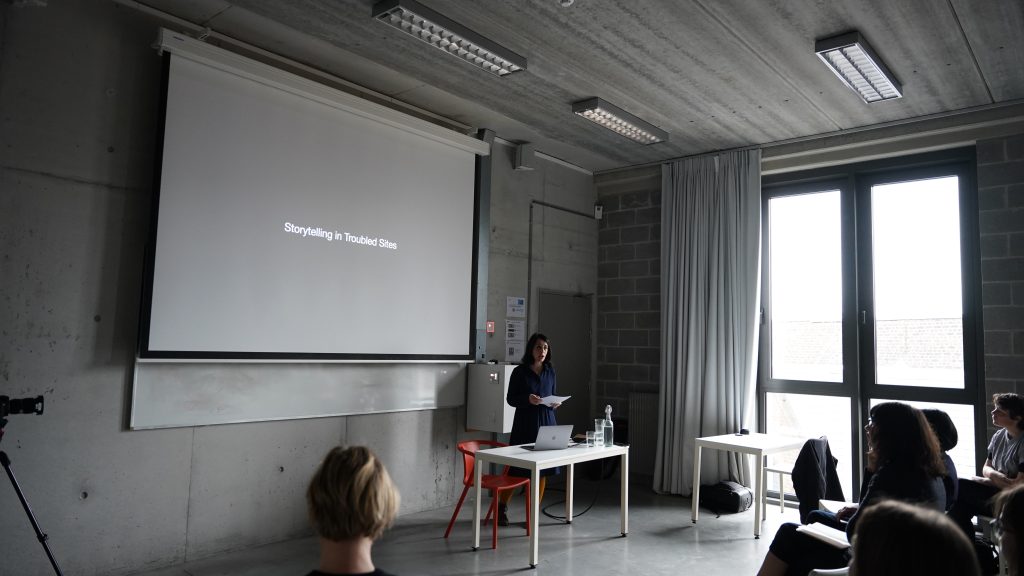
Sepideh Karami saw, with the same concern as Crouwers, her home country being hollowed out. Modernisation/colonisation brought the oil-industry to Iran and, with it, political schemes and too many losses (human and non-human). As an architect, writer and teacher, Sepideh knows how strong stories are hidden underneath the surface of our landscape. But what if everything is already pumped out by big corporates? Sepideh struggled with these troubled sites. That is until she realised its leakages, its spillages. In 2019, she set up an artistic research project called Oily Stories. To decolonise its narrative from the bigger infrastructure, she experiments with writing and telling through short stories, drawings, performances, and installations. The stories bound to specific oily locations flow into different domains, also having sources in Iranian literature and myths. The protagonist are goddesses, the region’s indigenous people, the workers of oil refineries and, as we discover during her reading, plankton.
Someone in the audience raised a perceptive question about these stories: when you speak from the perspective of the plankton, as in this case, can we talk about a new form of anthropocentric colonialism of the other species? Do we try to speak for them, and how can we avoid this?
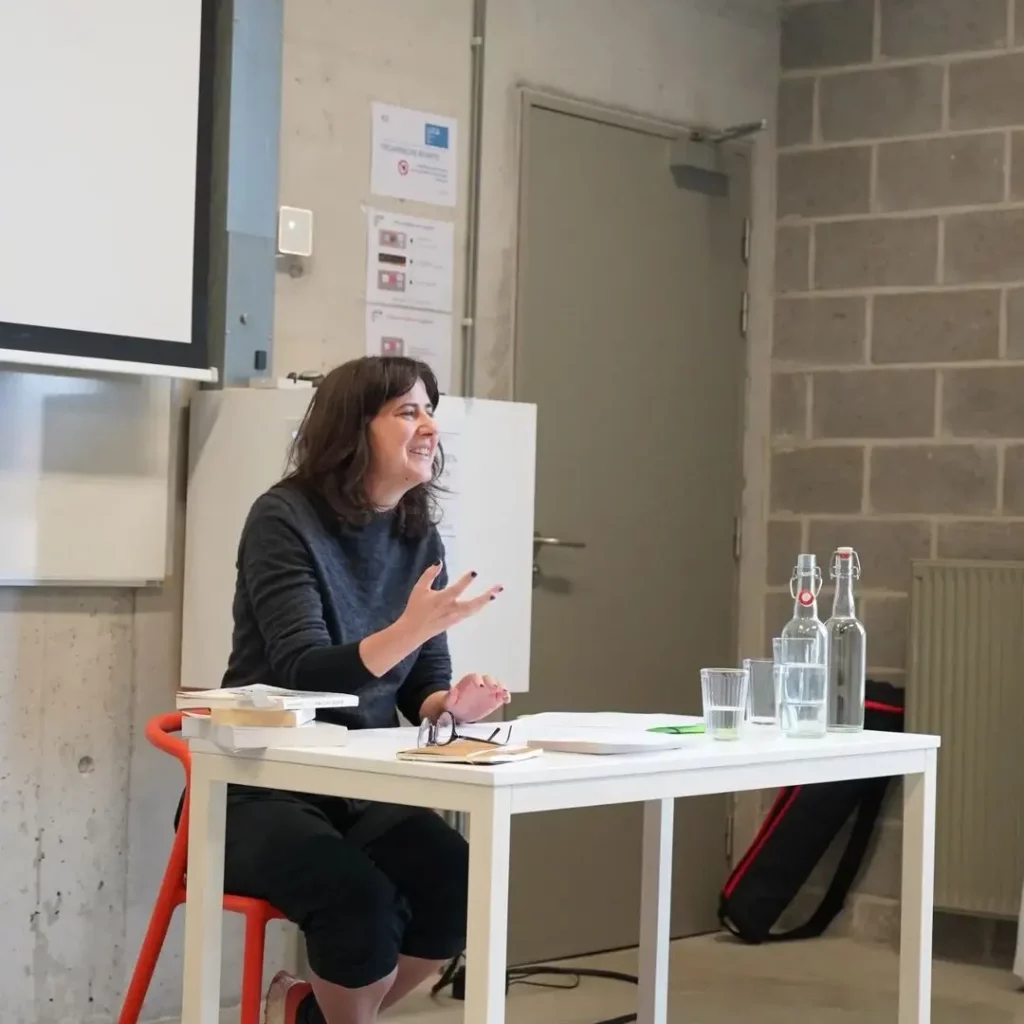
The next speaker was Kate Briggs, who, as a translator, has experience with this ‘speaking for’. However, she proposes that there is something as ‘speaking with’, or in her case, ‘writing with’. Kate explains that she uses the method of ‘narrative composition’ in her writing-practice. Less linear and glued together by relationships, she manifests a certain co-existence/-dependence in her stories. An essential factor is that of time schemes. An environment is constructed by them. Many different schemes, perspectives eventually, are gathered here. Co-existence as a rhythm problem, Kate concludes. All we must do is acknowledge the various processes, feel the beats within a living space. Let other schemes overlap with ours so that we can live together. Let the wor(l)ds flow. It felt as a heartening lesson to us.
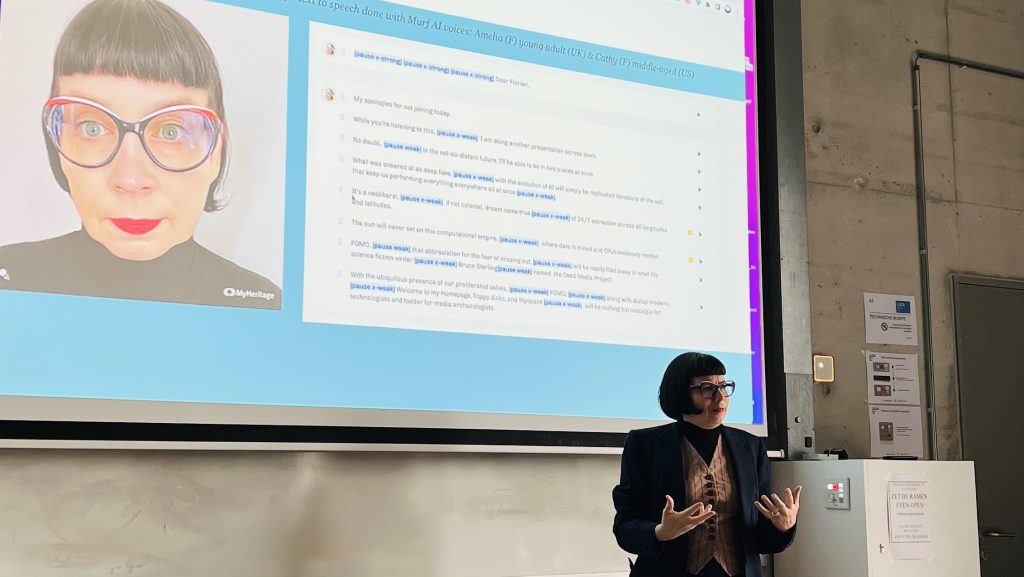
Renée Turner spoke of the care we should invest in relationships with the others (human/more-than-human/time schemes) that surround us. As an example, she wrote a talk from the perspective of her garden and had that speech spoken by an AI-version of herself. Yet, there was something else alienating happening simultaneously on her screen. The speech was translated back into text by a program based on algorithms and sounds. It resulted in weird transcripts that were complicated to follow. And mostly, it made us question the program. Renée made her key point at the end: compost, take care of AI like it is your garden. We need to ask what programmers and corporations are putting into AI, into algorithms, if we are to live with them. Take care of your monster (a wink to Mary Shelley’s monster of Frankenstein).

